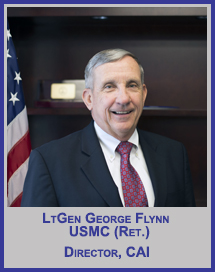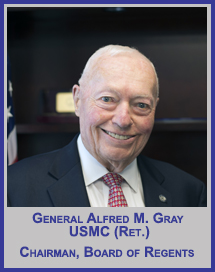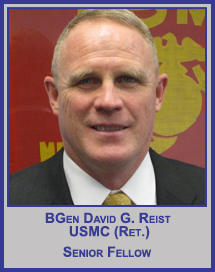Our Work
CAI Team
 Michael Swetnam assisted in founding the Potomac Institute for Policy Studies in 1994. Since its inception, he has served as Chairman of the Board and currently serves as the Institute's Chief Executive Officer.
Michael Swetnam assisted in founding the Potomac Institute for Policy Studies in 1994. Since its inception, he has served as Chairman of the Board and currently serves as the Institute's Chief Executive Officer.
He has authored and edited several books and articles including: "Al-Qa'ida: Ten Years After 9/11 and Beyond," co-authored with Yonah Alexander; "Cyber Terrorism and Information Warfare," a four volume set he co-edited; "Usama bin Laden's al-Qaida: Profile of a Terrorist Network," co-authored with Yonah Alexander; "ETA: Profile of a Terrorist Group," co-authored with Yonah Alexander and Herbert M. Levine; and "Best Available Science: Its Evolution, Taxonomy, and Application," co-authored with Dennis K. McBride, A. Alan Moghissi, Betty R. Love and Sorin R. Straja.
Mr. Swetnam is currently a member of the Technical Advisory Group to the United States Senate Select Committee on Intelligence. In this capacity, he provides expert advice to the U.S. Senate on the R&D investment strategy of the U.S. Intelligence Community. He also served on the Defense Science Board (DSB) Task Force on Counterterrorism and the Task Force on Intelligence Support to the War on Terrorism.
From 1990 to 1992, Mr. Swetnam served as a Special Consultant to President Bush's Foreign Intelligence Advisory Board (PFIAB) where he provided expert advice on Intelligence Community issues including budget, community architecture, and major programs. He also assisted in authoring the Board's assessment of Intelligence Community support to Desert Storm/Shield.
Prior to forming the Potomac Institute for Policy Studies, Mr. Swetnam worked in private industry as a Vice President of Engineering at the Pacific-Sierra Research Corporation, Director of Information Processing Systems at GTE, and Manager of Strategic Planning for GTE Government Systems.
Prior to joining GTE, he worked for the Director of Central Intelligence as a Program Monitor on the Intelligence Community Staff (1986-1990). He was responsible for the development and presentation to Congress of the budget of the National Security Agency, and helped develop, monitor and present to Congress the DOE Intelligence Budget. Mr. Swetnam was also assigned as the IC Staff representative to intergovernmental groups that developed the INF and START treaties. He assisted in presenting these treaties to Congress for ratification. Collateral duties included serving as the host to the DCI's Nuclear Intelligence Panel and Co-Chairman of the S&T Requirements Analysis Working Group.
Mr. Swetnam served in the U.S. Navy for 24 years as an active duty and reserve officer, Special Duty Cryptology. He has served in several public and community positions including Northern United Kingdom Scout Master (1984-85); Chairman, Term limits Referendum Committee (1992-93); President (1993) of the Montgomery County Corporate Volunteer Council, Montgomery County Corporate Partnership for Managerial Excellence (1993); and the Maryland Business Roundtable (1993). He is also on the Board of Directors of Space and Defense Systems Inc., Dragon Hawk Entertainment Inc., and the Governing Board of The Potomac Institute of New Zealand.
 LtGen George Flynn, USMC (Ret.), Member, Board of Regents
LtGen George Flynn, USMC (Ret.), Member, Board of Regents
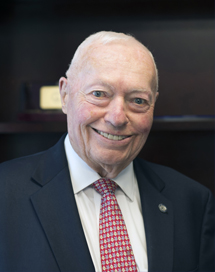 General Al Gray, USMC (Ret) serves as Chairman of the Board of Regents; Member of the Board of Directors; and Senior Fellow of the Potomac Institute of Policy Studies (PIPS). The PIPS serves as a non-partisan, not-for-profit policy research institute that provides an academic forum for the study of key national security, science and technology, and related policy issues. In addition to participating in monthly seminars related to the global terrorism challenge, he oversees the Center for Emerging Threats and Opportunities (CETO), which operates as a futuristic think tank for the Marine Corps at Quantico.
General Al Gray, USMC (Ret) serves as Chairman of the Board of Regents; Member of the Board of Directors; and Senior Fellow of the Potomac Institute of Policy Studies (PIPS). The PIPS serves as a non-partisan, not-for-profit policy research institute that provides an academic forum for the study of key national security, science and technology, and related policy issues. In addition to participating in monthly seminars related to the global terrorism challenge, he oversees the Center for Emerging Threats and Opportunities (CETO), which operates as a futuristic think tank for the Marine Corps at Quantico.
General Gray has served as Board Chairman and CEO for several public and private companies and has consulted to United States and international industry and government. General Gray’s other duties have included service on the Defense Science Board; the Defense Special Operations Advisory Group; the National Security Agency Science Advisory Board; the National Reconnaissance Office Gold Team; the Defense Operations Support Office Advisory Team; and as Director of the Advanced Concept Demonstration Technology for Combat in the Littorals. Consistent with his interest in education and helping servicemen and women, he is trustee Emeritus of Norwich University, past trustee on Monmouth University, past member of the National Defense University Board of Visitors and is Chairman Emeritus of American Military University. He is Chairman Emeritus of The Injured Marine Semper Fi Fund and the America Fund, having served over ten years, to help take care of wounded veterans and their families.
General Gray currently serves as Chancellor of The Marine Military Academy, Chairman of the US Marine Youth Foundation, Board of Trustee Chairman at the American Public University System, and Senior Mentor to the Defense Science Study Group.
In 1991, Al Gray retired after 41 years of service to the United States Marine Corps. From 1987-1991, General Gray served as a member of the Joint Chiefs of Staff, was the 29th Commandant of the Marine Corps, and was advisor to both Presidents Reagan and George H. W. Bush. As Commandant, he instituted and published a Warfighting Philosophy for Marines based on the Maneuver Warfare Thought Process. General Gray developed and implemented a new long-range strategic planning process for the Marine Corps, established the Marine Corps University, and implemented other longstanding changes, such as ensuring that every Marine is a rifleman first and that the Marine Corps was Special Operations Capable.
General Gray enlisted in the Marine Corps in 1950 and achieved the rank of Sergeant while serving in amphibious reconnaissance with Fleet Marine Force, Pacific aboard the submarine USS Perch (ASSP-313). He was commissioned a Second Lieutenant in 1952. In the early years, he held extensive assignments overseas in the Far East and Southeast Asia in infantry, artillery, intelligence, communications and special operations. He has held every infantry command assignment from platoon commander through Division Commander and has commanded every Marine Air Ground Task Force from Marine Corps Expeditionary Unit to Marine Expedition Force.
Among his awards are two Defense Distinguished Service Medals, two Navy Distinguished Service Medals, Distinguished Service Medals from the US Army, the US Air Force and the US Coast Guard, the Silver Star Medal, two Legion of Merits with Combat "V", four Bronze Star Medals with Combat "V", three Purple Hearts, three Joint Commendation Medals, the Meritorious Service Medal, the Navy Commendation Medal, the Vietnamese Cross of Gallantry with Palm and Star, as well as foreign awards from Argentina, Brazil, Chile, Columbia, Korea and The Netherlands.
General Gray holds a B.S. from the University of the State of New York. He also attended Lafayette College, the Marine Corps Command and Staff College and the Army War College. General Gray is the recipient of two honorary Doctor of Law degrees, one from Lafayette College and the other from Monmouth University, and was awarded a Doctor of Military Science from Norwich University. He was the first awardee of an Honorary Doctorate of Strategic Intelligence from the Defense Intelligence College (now the Joint Military Intelligence College), was awarded an Honorary Doctorate for Leadership from the Franklin University, an Honorary Doctorate for Public Service from the American Public University System, and an Honorary Doctorate of Warfare Studies from the Marine Corps University.
In 2008, General Gray was inducted into the National Security Agency Hall of Honor for rendering distinguished service to American Cryptology.
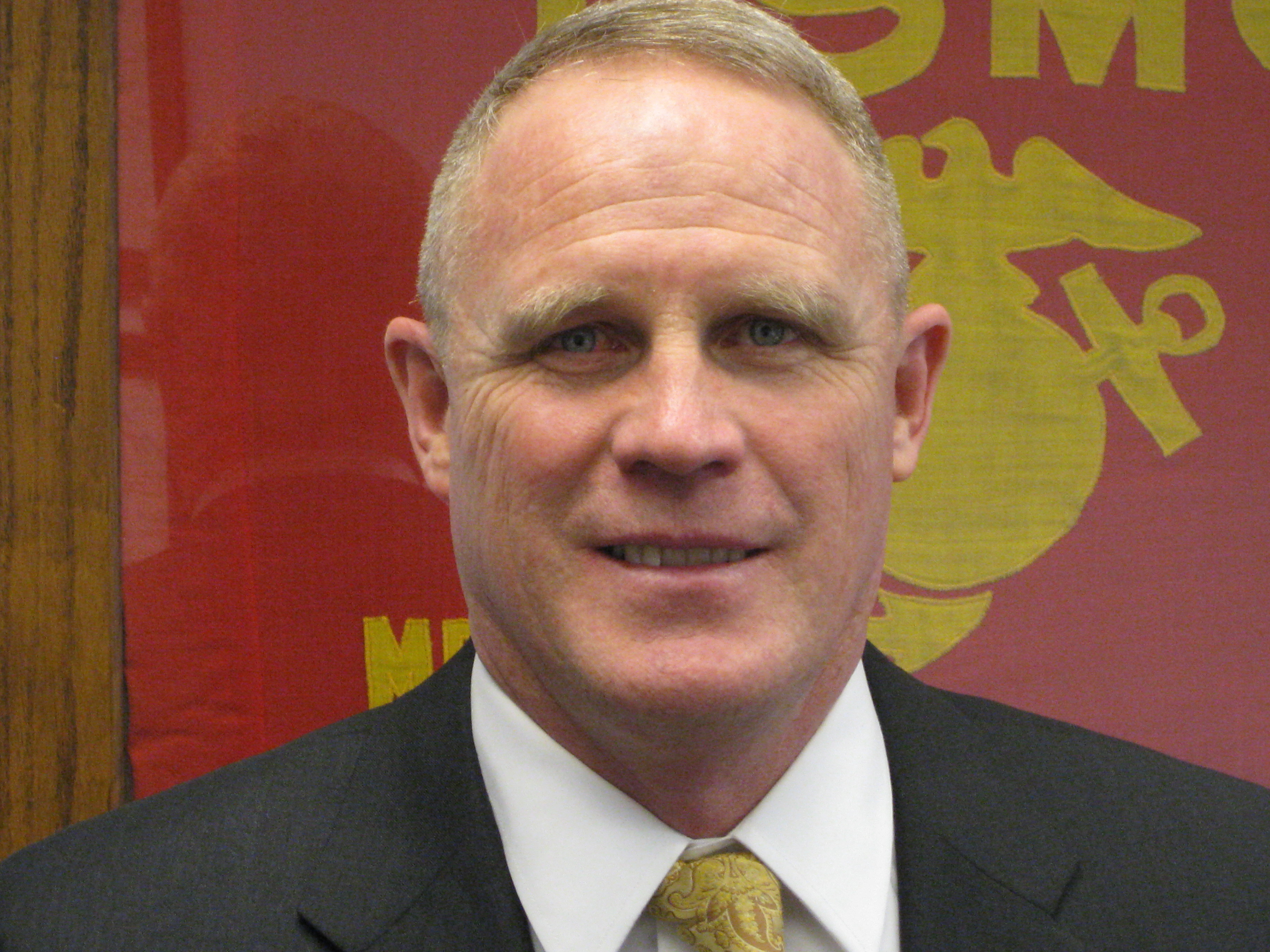 Brigadier General David G. Reist, USMC (Ret.), is Senior Fellow for the Potomac Institute for Policy Studies.
Brigadier General David G. Reist, USMC (Ret.), is Senior Fellow for the Potomac Institute for Policy Studies.
He most recently served as the Assistant Deputy Commandant, Installations and Logistics Department, (LP), Headquarters, United States Marine Corps, Washington, DC.
Brigadier General Reist’s command assignments include: CO Company A, 2nd Landing Support Battalion (1981-1982); CO Company A, Marine Barracks 8th & I (1985-1986); CO Beach & Port Company, 2nd Landing Support Battalion (1989-1990); CO 1st Landing Support Battalion (1997-1998); CO 1st Transportation Support Battalion (2002-2004) (redesignated Transportation Support Group during Operation Iraqi Freedom; Combat Service Support Group-11 during Operation Iraqi Freedom-II) and CG 1st Force Service Support Group (redesignated 1st Marine Logistics Group) (2005-2007).
Brigadier General Reist’s staff assignments include: Division G-4, 3rd Marine Division (1982-1983); Head, Motor Transport, Engineer, and Utilities Writer Section, Marine Corps Institute (1983-1984); Registrar, Marine Corps Institute (1984-1985); Operations Officer, MSSG-22 for LF6F 4-87 and 1-89 (1987-1989); Executive Officer, 2nd Landing Support Battalion (1990); Ground Prepositioning Program Sponsor (1990-1992) and Maritime Prepositioning Program Sponsor (1992-1993), Plans, Policies, and Operations, Headquarters Marine Corps; Current Operations Officer, U.S. Central Command J-4/7 (1994-1997); Deputy G-3, 1st FSSG (2000); Faculty Advisor (2000-2001) and Deputy Director (2001-2002), Marine Corps Command and Staff College; Chief of Staff, 1st FSSG (2004-2005) and Deputy CG (Support), I Marine Expeditionary Force Forward (2006-2007).
Brigadier General Reist graduated from the State University of New York at Geneseo in 1978 with a Bachelor of Science in Biology. He also holds a Master of Strategic Studies from the Marine Corps War College and a Master of Arts in National Security and Strategic Studies from the Naval War College.
 Dwight Lyons is a Senior Research Fellow at the Potomac Institute for Policy Studies and the Director of the Concepts and Analyses Division. He holds a masters degree in physics, served in the U.S. Army, and in addition has over 26 years providing analytical and technical support for Naval operations, developing systems and processes, operational and strategic planning, definition and management of Science and Technology (S&T) programs, experimentation, transition of successful S&T products, research program financial management, and participation in “real-world” military operations. He has worked on a number of programs, formulating and executing S&T programs, conducting technology assessments and applications to military operational needs, working with teams at ONR and DARPA, military laboratories, and operational commands, and including both near-term transitions and the development of strategic long range S&T plans. Mr. Lyons is recognized as a leading expert in the analytical and technical support of warfighting and S&T programs.
Dwight Lyons is a Senior Research Fellow at the Potomac Institute for Policy Studies and the Director of the Concepts and Analyses Division. He holds a masters degree in physics, served in the U.S. Army, and in addition has over 26 years providing analytical and technical support for Naval operations, developing systems and processes, operational and strategic planning, definition and management of Science and Technology (S&T) programs, experimentation, transition of successful S&T products, research program financial management, and participation in “real-world” military operations. He has worked on a number of programs, formulating and executing S&T programs, conducting technology assessments and applications to military operational needs, working with teams at ONR and DARPA, military laboratories, and operational commands, and including both near-term transitions and the development of strategic long range S&T plans. Mr. Lyons is recognized as a leading expert in the analytical and technical support of warfighting and S&T programs.
About the Center for Adaptation and Innovation
The Center for Adaptation and Innovation (CAI) identifies and defines new and potentially disruptive defense capabilities. CAI assists senior defense leaders grappling with the most demanding issues and problems posed by a complex and uncertain security environment.
The purpose of CAI is to identify and define new and potentially disruptive defense capabilities. The Center operates on these organizing principles:
Sources for military innovation and adaptation will no longer be limited to traditional means.
Many adaptations and innovations will come from advances in the commercial sector.
Current requirements and acquisition processes do not create capability at the required pace of the operating environment.
Innovative thought will continue to provide strategic and operational advantage.
.
© 2024 Potomac Institute for Policy Studies









